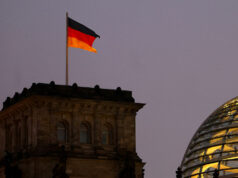THE Department of Trade and Industry (DTI) said negotiations on the Regional Comprehensive Economic Partnership (RCEP) are expected to conclude next year.
“The RCEP negotiations and discussions have progressed substantially this year and have reached the final stage. The Ministers have resolved to conclude the RCEP in 2019. This is our sixth ministerial meeting for 2018, and is a very important one as we advance the negotiations towards its conclusion by next year,” Trade Secretary Ramon M. Lopez said in a statement on Tuesday.
Mr. Lopez was in Singapore for the RCEP Ministerial Meeting on Nov. 12-13.
“The Philippines, together with other RCEP parties, will greatly benefit from this partnership especially in harnessing the economic benefits from promoting trade, investment, employment, and economic growth,” he added.
Since RCEP negotiations commenced in 2012, seven out of 18 chapters of the agreement have been finalized.
These cover Customs Procedures and Trade Facilitation; Government Procurement; Institutional Provisions; Sanitary and Phyto-Sanitary Measures; Standards, Trade Regulations, and Conformity Assessment Procedures; Small and Medium Enterprises; and Economic and Technical Cooperation.
“We have now entered the most critical stage of the negotiations, with a greater focus on Market Access for Goods, Investments, and Services,” Mr. Lopez added.
Since 2012, the 10 ASEAN member states — Brunei, Cambodia, Indonesia, Laos, Malaysia, Myanmar, the Philippines, Singapore, Thailand and Vietnam — have been trying to conclude negotiations on RCEP. The pact involves free trade with Australia, China, India, Japan, South Korea and New Zealand.
If concluded, the GDP of RCEP members will account for a third of the global economy and close to half of the world’s population. — Janina C. Lim



